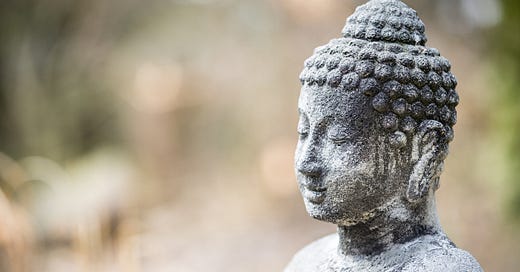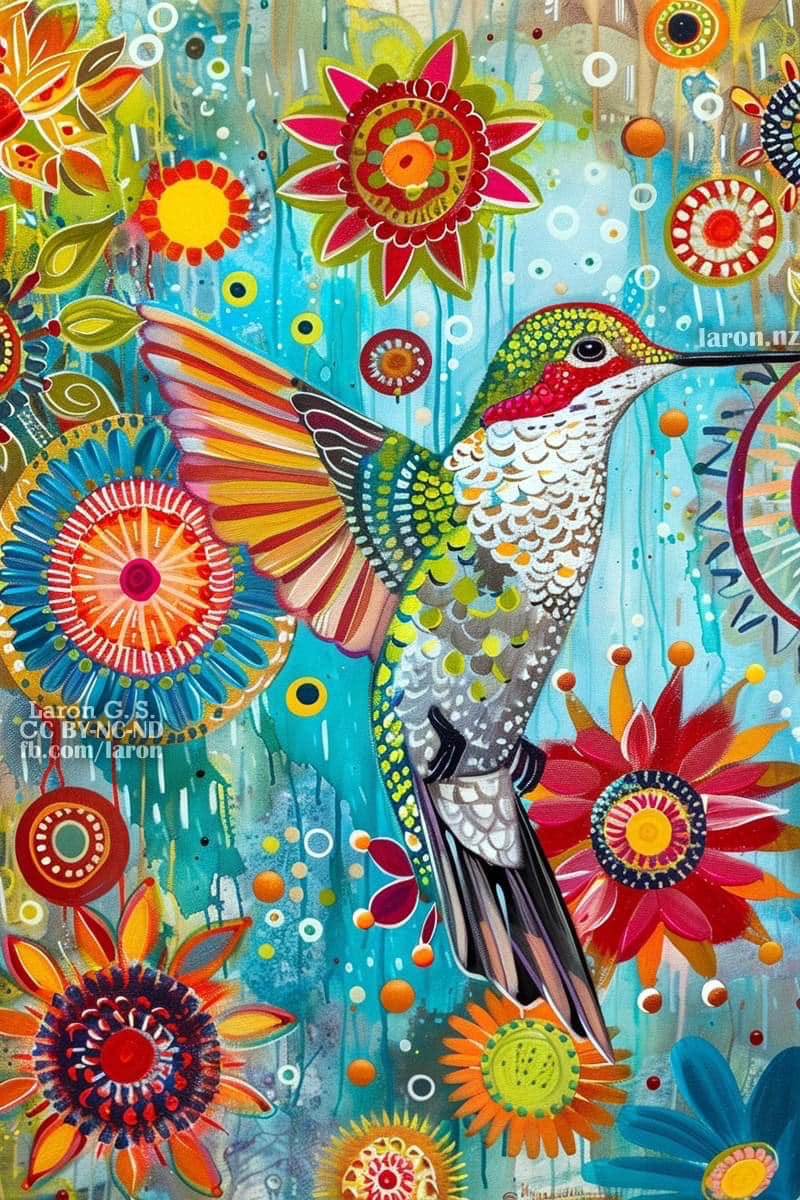Good morning beloved reader,
I took a little hiatus as I wanted to create some space around what I offer here at this Substack. (Also please note, for those of you who have kindly and generously offered paid subscriptions to support my work, with my intention towards integrity: I paused subscription billings until May 14th.)
But my writing is popping up in your inbox now, as I want to share something I just learned that is helping my own exploration of and investigation into the cessation of suffering. Perhaps not directly tied in with the Rising of the Divine Feminine, but helpful nonetheless.
I’ve been gathering with friends for a Buddhist sutta study group about once a month or so, since April last year. We’ve alternated between gathering by ourselves, and gathering with a Buddhist monk from the monastery across the road, or sometimes Zooming with a monk in another location.
During one gathering with a monk, we spoke of suffering and cessation of suffering and the topic arose of discrimination against women in some settings. This monk wisely counseled:
“There are many obstacles to the cessation of suffering, including a variety of biases and discriminations of many different kinds. But don’t get hung up the obstacle.”
~
Of course this doesn’t take away from the fact that increased awareness is necessary around ALL kinds of discrimination and biases, which will hopefully lead to an evolution of consciousness for ALL of humanity.
And we each get to add our single drop to the oceanic movement needed in this direction. And perhaps the essence of each single drop is our own inner work.
Yesterday we gathered for a sutta study group just with friends and I learned that the Buddha spoke of three kinds of dukkha.
One note — you may already be aware that dukkha is often translated as suffering, but it can also be thought of as anxiety, distress, frustration, unease, unsatisfactoriness, not having what one wants, having what one doesn't want, etc.
So I learned that the Buddha discussed these three types of dukkha:
Dukkha-dukkha — the suffering of suffering. This refers to the physical and emotional discomfort and pain all humans experience in their lives. It’s the kind of suffering you experience with any of the 5 sense perceptions (sight, sound, smell, taste, and touch) and includes the 6th sense of the mind — what kind of thought chatter are you observing moving through your mind, and is it causing you suffering?
Viparinama-dukkha — the suffering of change. This refers to the suffering that arises from an inability to accept change. People cling to pleasurable experiences and feel sad when they pass, and have great difficulty accepting the truth of impermanence. This points towards how we want to cling to pleasurable experiences and push away unpleasant experiences, rather than just being with what is. “It’s Like This.”
Sankhara-dukkha — the suffering of existence. This could almost be described as background suffering. It is the profound unsatisfactoriness of existence, caused simply by existence.
~
And seeing as I’m interested in any and all spiritual principles that serve the evolution of human consciousness, I will leave you with this exquisite Native American Indian story about a Hummingbird.
According to an old Native American legend, one day there was a big fire in the forest. All the animals fled in terror in all directions, because it was a very violent fire. Suddenly, the jaguar saw a hummingbird pass over his head, but in the opposite direction. The hummingbird flew towards the fire!
Whatever happened, he wouldn't stop. Moments later, the jaguar saw him pass again, this time in the same direction as the jaguar was walking. He could observe this coming and going, until he decided to ask the bird about it, because it seemed very bizarre behavior.
“What are you doing, hummingbird?” he asked.
“I am going to the lake,” the hummingbird answered, “I drink water with my beak and throw it on the fire to extinguish it.” The jaguar laughed. “Are you crazy? Do you really think that you can put out that big fire on your own with your very small beak?”
“No,” said the hummingbird, “I know I can't. But the forest is my home. It feeds me, it shelters me and my family. I am very grateful for that. And I help the forest grow by pollinating its flowers. I am part of her and the forest is part of me. I know I can't put out the fire, but I must do my part.”
At that moment, the forest spirits, who listened to the hummingbird, were moved by the bird and its devotion to the forest, miraculously they sent a torrential downpour, which put an end to the great fire.
The Native American grandmothers would occasionally tell this story to their grandchildren, then conclude with, “Do you want to attract miracles into your life? Do your part.”
“You have no responsibility to save the world or find the solutions to all problems—but to attend to your particular personal corner of the universe. As each person does that, the world saves itself.”






I love the story of the hummingbird. I have heard it before, but so thankful to be reminded of it here in your post. We all suffer, we all experience loss, we all live a life of ongoing change. How important to offer one's own gifts, that special aspect that each of us play. True collaboration and relationship.
Camilla,
Welcome back. It is wonderful to read that your time “away” was reflective. I especially appreciate this explication and differentiation of the three dukkha’s. Thank you.